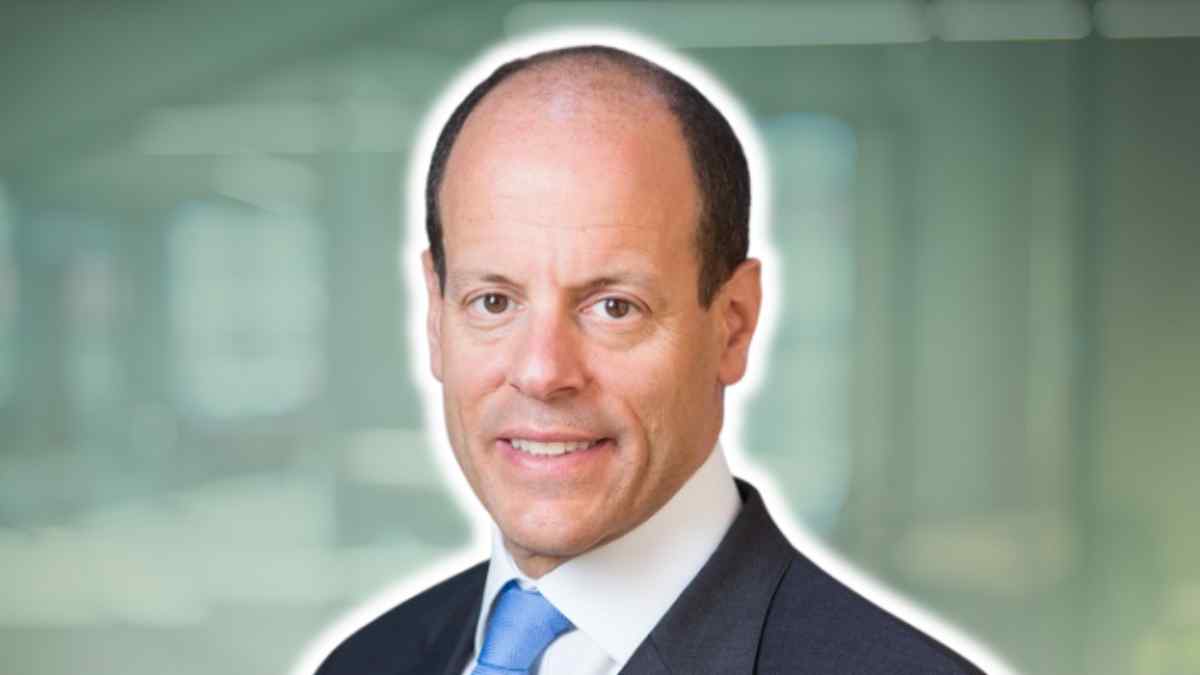Keith Breslauer: Visionary Leader Reshaping European Real Estate and Philanthropy

Keith Breslauer is a name that resonates deeply within European real estate and philanthropic circles. As the Founder and Managing Partner of Patron Capital, his journey is one of strategic vision, bold decisions, and a rare blend of financial acumen and compassion. This article delves into his life, career, and impact, exploring how he transformed distressed assets into thriving investments and how his charitable work underscores a deep commitment to human impact. By the end, you’ll understand not only who Keith Breslauer is, but why his approach continues to shape real estate and give back in meaningful, enduring ways.
Early Life and Foundation of Values
Keith Breslauer’s story begins far from the boardrooms and large portfolios. Growing up, he was instilled with a strong belief in the value of hard work, education, and integrity. Although details of his early childhood remain less public, those closest to him describe a person grounded in curiosity and driven by a desire to make things better—not just for himself, but for others.
From these roots emerged a commitment to rigorous study. Keith attained a Bachelor of Science in Finance from New York University’s Stern School of Business, a programme that sharpened his analytical skills. He followed this with an MBA from the University of Chicago Booth School of Business, recognised for its emphasis on disciplined thinking, quantitative analysis, and entrepreneurial initiative. These educational foundations equipped him with both the tools to navigate complex financial landscapes and the courage to take on risk.
Entry into Finance and Early Investment Career
Prior to founding Patron Capital, Keith built his financial expertise in well-known banking institutions. He worked at Goldman Sachs and later at Lehman Brothers. These roles offered a close-up view of capital markets and distressed assets—a theme that would come to define his later work.
His years in banking coincided with periods of market turbulence. Exposure to financial downturns, volatile credit conditions and distressed property assets gave him an inside understanding of what fails and what succeeds in crisis. Keith Breslauer absorbed these lessons: that opportunity often lies where risk is highest, and that doing the difficult work of restructuring or revitalisation often brings the most substantial rewards.
Founding of Patron Capital and Investment Philosophy
In 1999, Keith Breslauer founded Patron Capital, a London-based real estate investment firm focused on opportunistic and value-add assets across Europe. From the outset, its mission was not simply to buy and hold, but to identify properties—often distressed, underused or undervalued—and transform them through active management, redevelopment, or re-positioning.
Key Principles of His Strategy
-
Distressed and Value-Add Focus
Instead of chasing shiny, already-successful real estate, Keith seeks out properties where something important is broken—be it ownership disputes, underinvestment, obsolete use, or financial distress. These are not easy stories, but they are where margins, innovation and impact converge. -
Hands-On Management
It is not enough to buy; the work must follow. Patron Capital under his leadership takes responsibility for management, restructuring, repositioning and often adapting assets to new uses. This includes converting old offices to flexible workspaces or residential use, redeveloping retail assets in changing high streets, or handling operational challenges head-on. -
European Diversification
Keith’s strategy has long emphasised spreading risk across multiple European markets. Even when certain countries or cities face headwinds—regulatory, economic or social—others show growth, creating balance. This geographical reach allows Patron to avoid overexposure and capture opportunity wherever it arises. -
Focus on Credit and Debt Structures
In recent years, credit strategies (including distressed credit) have become central to his thinking. Patron doesn’t only own property; it often provides or acquires debt secured by real estate, or helps restructure debt-laden assets. This gives access to different risk/return dynamics and often less competition than in pure equity plays.
Key Milestones and Major Transactions
Over the years, Private Capital under Keith Breslauer has accomplished multiple significant transactions and strategic shifts. Some of the key moments:
-
Growth of Funds and Capital Commitments: The firm has raised large funds targeting opportunistic assets across Europe. Its investors include institutional capital seeking strong returns in periods of market stress.
-
Recent Investment Shift: A notable recent development is the partnership with Mitsubishi Estate, through which a majority stake in Patron Capital was sold. This deal included approximately €600 million in equity and financing commitments toward new strategies, especially real estate credit. This industrial-scale move signals both trust in Patron’s trajectory and an acknowledgment of Keith’s vision for future growth.
-
Redevelopment Projects: Under his hand, Patron has converted numerous distressed or underperforming assets: old office buildings into residential flats, reworking retail properties in declining markets, taking advantage of mismatched zoning or underutilised land. These projects often involve complex negotiations, regulatory navigation, community engagement, and design vision.
-
Risk-mitigated Investing during Cycles: Patron under Breslauer has often been willing to act in downturns or when others retreat. This includes acquiring assets at low points in the cycle, or helping with debt restructuring, when capital is scarce and returns potentially much higher.
Leadership Style and Personal Characteristics
What sets Keith Breslauer apart goes beyond analytics and deal-making. The soft qualities he brings have played a huge role:
-
Calm under Pressure: Whether facing regulatory hurdles, economic slowdowns or investor concerns, Breslauer is reported by colleagues to maintain a steady and pragmatic demeanour. This steadiness allows clear decision-making even in complex, fast-moving environments.
-
Strategic Patience: He recognises that many value-add investments or distressed opportunities require long horizons. Expectations vs reality often diverge, and patience is not just virtue but necessity in transforming an underperforming asset.
-
Ethical Rigour and Transparency: Despite the opacity that sometimes characterises real estate, Keith has emphasised alignment with investors, clarity on strategy, and integrity in execution. These features enhance trust and help in sourcing better deals.
-
Philanthropic Heart: Off the deal sheet, his values show in giving back. His leadership in education and veterans’ charities demonstrates that his definition of success isn’t just financial.
Philanthropy and Public Service
Keith Breslauer has consistently committed time, resources and influence to charitable causes. His work in this arena reflects the same traits seen in his professional life: boldness, compassion, long-term focus.
Education and Learning
He serves as Chairman of the Prince’s Teaching Institute (PTI), an organisation dedicated to improving the quality of teaching in UK primary schools through professional development, curriculum innovation and supporting teachers. His support and leadership have helped PTI refine programmes, reach more schools, and influence policy conversations about education. His commitment here is rooted in belief that strong early education is a lever for social equality.
Veterans and Military Charities
Keith is Vice Patron (or Trustee) of The Royal Marines Charity. This reflects a deep respect for those who serve, and a desire to support wounded veterans, resilience programmes, mental health and community reintegration efforts. His involvement goes beyond donating; he participates in strategic oversight and helps marshal resources.
Broader Social Impact
Beyond formal roles, Breslauer has been involved in philanthropic endeavours that are less public but no less meaningful—supporting local organisations, backing innovation in the charitable sector, and ensuring that when he gives, it is done well. His thought leadership includes speaking and writing about purpose, responsibility, and how business success can translate into societal well-being.
Challenges and Controversies
No high-profile real estate career is free of criticism, and Keith Breslauer’s path is no exception. Navigating distressed assets and messy situations means dealing with:
-
Regulatory Hurdles: Different European countries have widely varying zoning laws, tenant protections, heritage requirements, tax regimes. Turning around underperforming properties often requires negotiating these constraints, sometimes public pushback from local communities or heritage bodies.
-
Market Volatility: Real estate markets across Europe have been through downturns, inflationary pressures, rising interest rates, and changing patterns of demand (for office, retail or residential). Being heavily invested in assets sensitive to economic cycles means Breslauer must constantly reassess exposure, cost of capital and viability.
-
Stakeholder Management: Investors, tenants, local governments, community groups: all parties matter. Changes in usage (e.g. converting commercial buildings to residential), or redeveloping iconic structures, sometimes draw resistance or require years of negotiation.
-
Public Scrutiny: With high-value deals and interactions with public interest (heritage, planning, public funds) there is always scrutiny. Mistakes or perceived missteps can attract media attention. Breslauer’s track record is generally regarded as strong, but occasional contentious redevelopments or proposals have required careful handling.
Recent Developments and Future Outlook
As of 2025, Keith Breslauer is steering Patron Capital through a significant transition. The partnership with Mitsubishi Estate signals both capital infusion and strategic expansion. Key dimensions to watch:
-
Real Estate Credit as Core Strategy: With interest rates shifting and capital markets tightening, credit and debt instruments (secured by real assets) are likely to represent an increasingly important pillar of Patron’s strategy. This promises attractive yield for investors who accept the risks, and differentiation in competition for equity-only deals.
-
Sustainability and ESG Forces: Environmental regulation, energy efficiency standards, social value obligations—these are not peripheral; they are central to new property development and repositioning. Breslauer has been attentive to these trends; future assets will likely need to align with net zero goals, green certifications, and positive community impact.
-
Urban Regeneration and Mixed-Use Developments: As European cities continue to evolve—declining retail, changing work patterns, demand for more flexible living – there is opportunity in reimagining old assets for new urban life: combining residential, workspace, leisure, green open spaces and technology integration. That fits well with what Patron under Breslauer already does.
-
Geopolitical and Economic Uncertainty: Inflation, interest rate rises, global capital flows tightening, regulatory changes—these present challenges. But Keith’s strength lies in turning adversity into opportunity. Those who move early when others retreat often reap large rewards. In this sense, the coming years may show Patron doing some of its most impactful work yet.
Lessons from Keith Breslauer’s Approach
What can aspiring investors, business leaders or change makers learn from Keith Breslauer’s story?
-
Seek the difficult story: Easy deals are crowded. Underserved, underperforming or distressed assets often require more effort—but offer room for outsized returns.
-
Stay grounded in fundamentals: Finance, negotiation, operations, legal/regulatory knowledge—none of these can be ignored. Strategy depends on getting the basics right.
-
Adaptability is essential: Market cycles shift. What worked ten years ago may not today. Being open to new strategies—credit, mixed-use, sustainability—is both risk mitigation and opportunity.
-
Values matter: Reputation, integrity, transparency—in the long run—shape capacity to win not only deals but trust. That trust opens doors with capital partners, regulators, communities.
-
Think long-term impact: Whether in real estate investment or in philanthropy, the biggest value often comes from sustained, thoughtfully managed change rather than quick wins.
Conclusion
Keith Breslauer stands out as a figure who bridges the worlds of high-finance real estate and heartfelt philanthropy. His trajectory—from education, through banking, through building Patron Capital into a force in European real estate—is marked by smart risk taking, strategic yield, and ethical resolve. While the markets ahead may be uncertain, his approach—melding credit strategies, asset transformation, sustainability and social purpose—positions him well. As someone who invests not just in properties but in people and possibilities, Keith Breslauer’s influence will likely endure far into the future.



